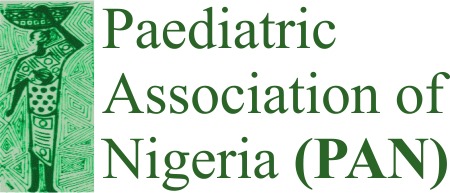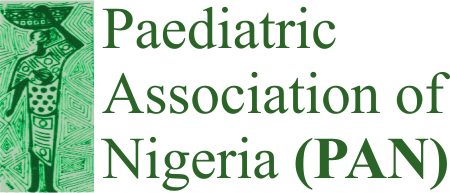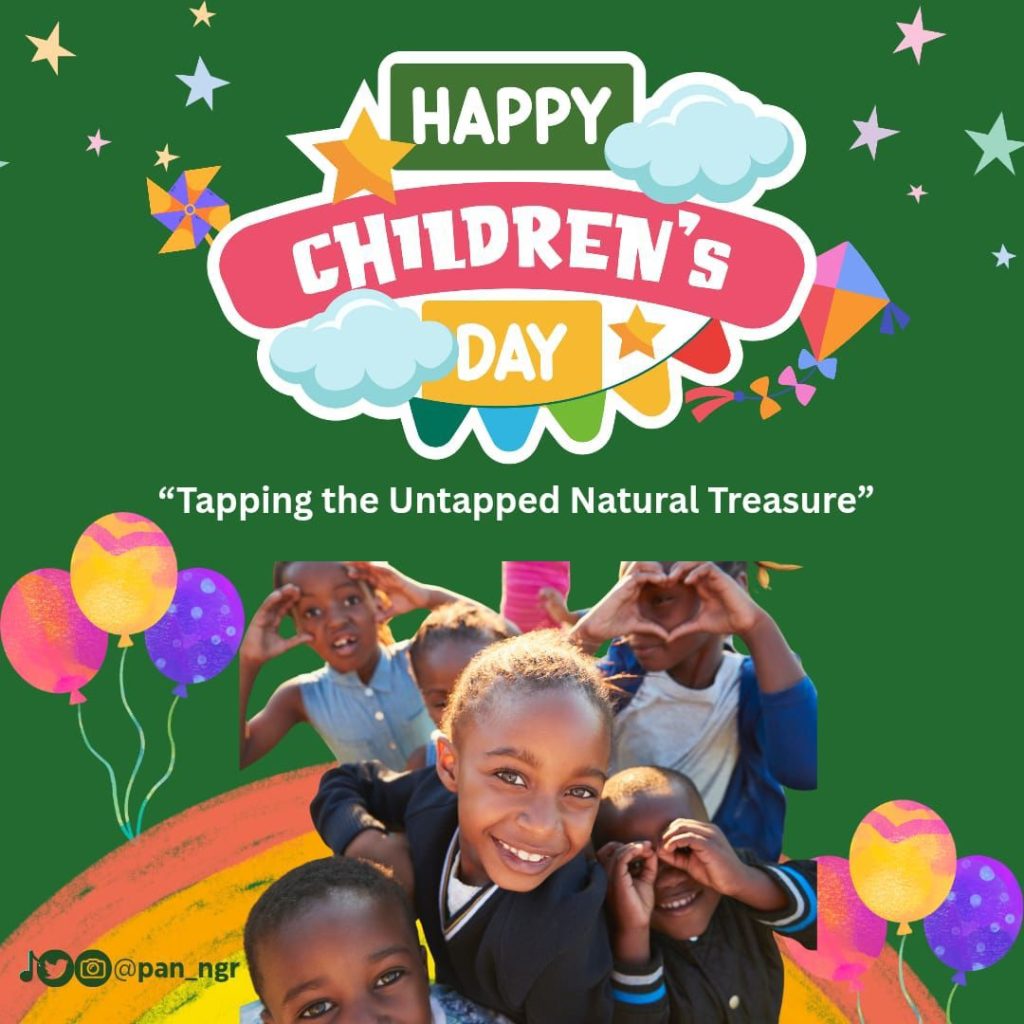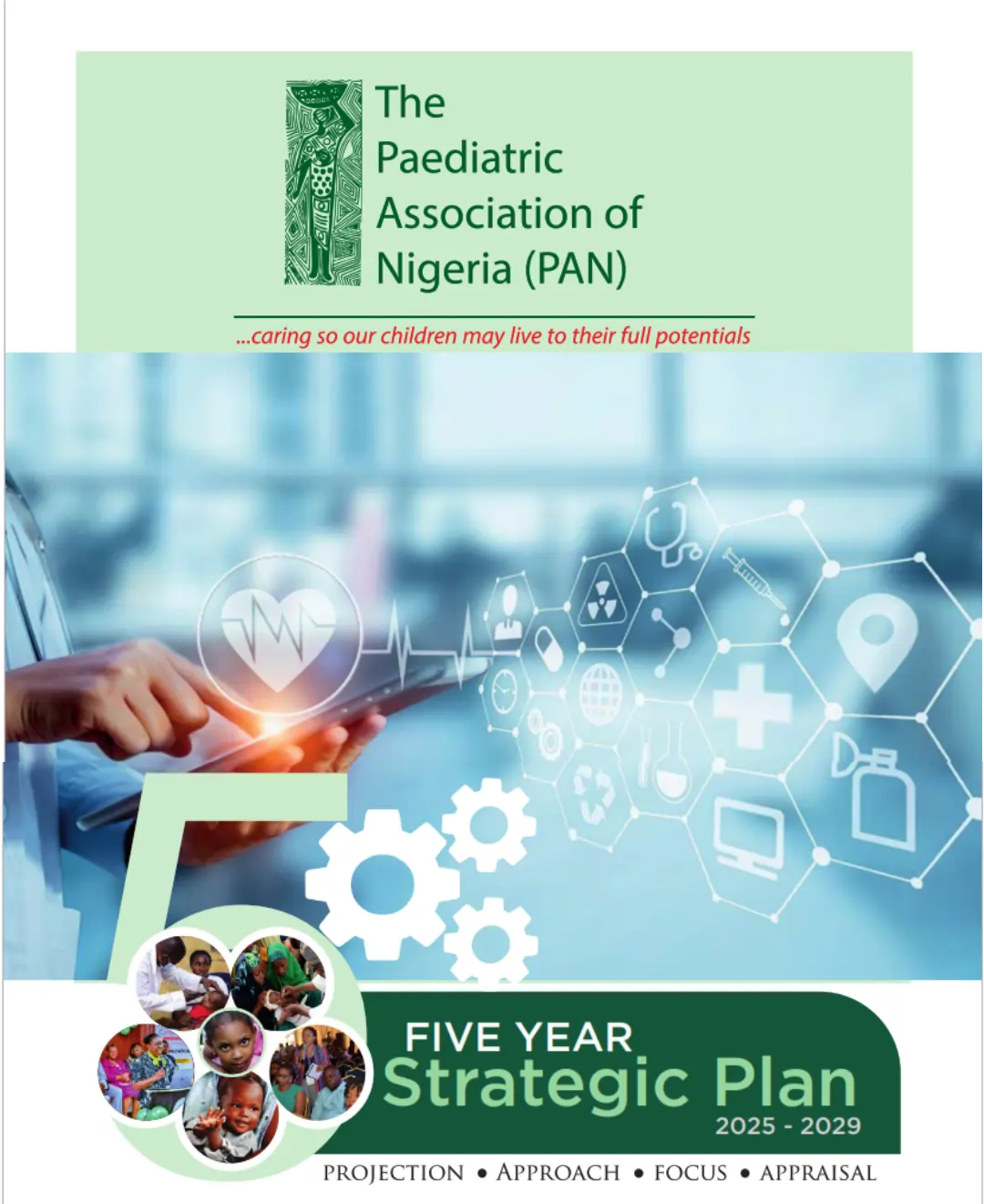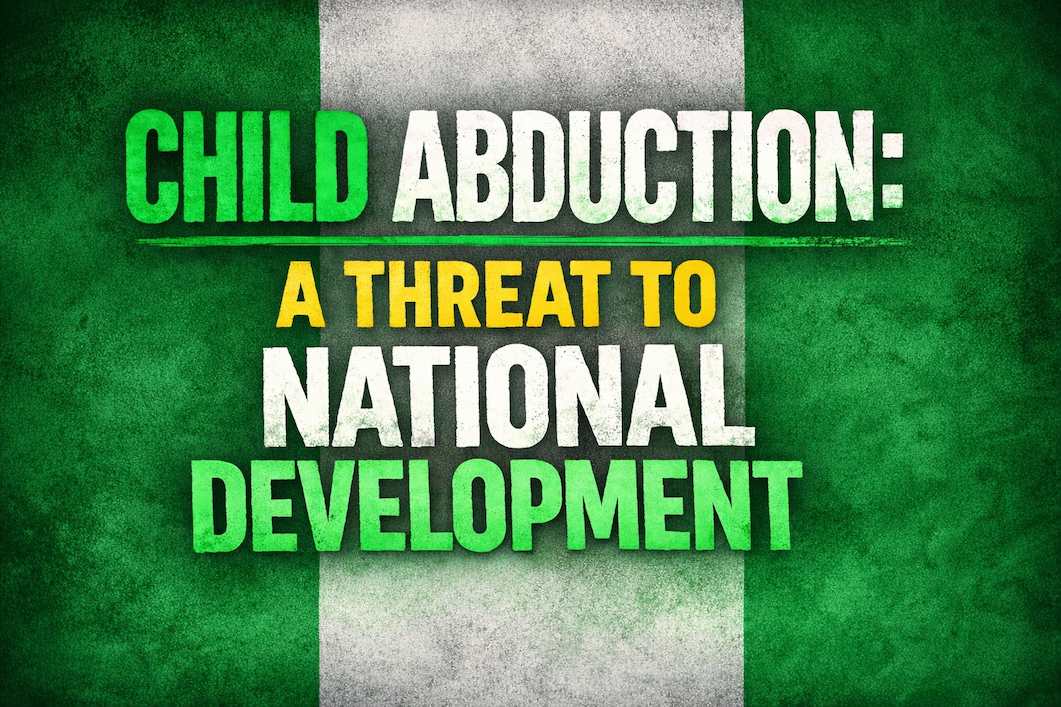The Paediatric Association of Nigeria (PAN) felicitates with the Nigerian child on the occasion of the 2025 Children’s Day. This association, as its core value, stands in the gap, advocating and providing a voice for this voiceless and vulnerable group. Children and adolescents up to 15 years of age constitute close to 40% of the Nigerian population. That is a huge proportion that can turn around the prospects of a nation, if well nurtured.
Children’s Day celebration in Nigeria comes with a lot of fun fairs which provides opportunities for children, irrespective of class or creed, to play, feast, and network in a safe situation. PAN is also actively involved in creating Children’s Day funfair by organising educative and skill-developing contests, with very beautiful prizes and awards. This year celebration will feature an art competition around the theme of nutrition for secondary schools within Abuja, the Federal Capital Territory.
Further, to us in PAN, it is also an opportunity to reflect over the situation of the Nigerian child and highlight their potentials against the backdrop of the various factors pushing against the potentials. PAN believes that the state of children, adolescents and youths is a reflection of the well-being of the nation. How many deaths or social mishaps happen or are prevented among children, adolescents and youths, reflect their access to a safe environment, good nutrition, good education, good healthcare and good social upbringing. Therefore, a critical examination of the situation of the Nigerian child, like the Children’s Day celebration offers, will provide an opportunity to appraise how responsive and supportive the government, the society and the family have been in shaping the future of children, adolescents and youths. Beyond the rhetoric of saying the children of today are the leaders of tomorrow, PAN is asking what quality of future awaits these children and how well the children are prepared and equipped for that future.
While celebrating the Nigerian child today, PAN appreciates the progress the nation has made in terms of child health care. PAN acknowledges amongst others, the increasing rate of birth registration, the various efforts at increasing food security and supports for childhood vaccination, particularly the recently introduced Human Papillomavirus Vaccine. Nevertheless, PAN is not oblivious of the various challenges to the optimisation of the potentials of the Nigerian child. Close to 20 million Nigerian children are currently out-of-school and forms about a fifth of the global burden of out-of-school children. This is a reservoir for illiteracy, poverty, poor job opportunities, and crimes. Similar figures were reportedly displaced from their homes by armed conflicts and natural disasters while over 300, 000 children had been killed during insurgencies in parts of the country. PAN is aware of the dangers constituted by close to 2.5million zero-dose children in physically and socially hard-to-reach populations. PAN is also aware of the economic hardship in the country and how it affects the Nigerian child through severe malnutrition (as four out of every ten under-five Nigerian children are stunted – chronically starved), re-emergence of severe vaccine-preventable diseases (diphtheria, measles, cholera), lack of access to good healthcare and higher risks of morbidity and mortality from common ailments. PAN is equally worried about the increasing newborn mortality rates in Nigeria and the persistence of preventable communicable diseases causing childhood deaths.
However, in total agreement with the theme for this year’s celebration viz – Tapping the untapped natural treasures- PAN desires, as steps towards this goal, a universal and religious implementation of the Child Rights Act in every state of the federation that has domesticated the laws. This, to a large extent, will ensure the survival and social dignity of Nigerian children. Critical steps must be taken to address the myriad of problems in the education of Nigerian children. Out-of-school children must be taken back to school, and be enrolled for trainings that will benefit the society by extension. Advocacies and social re-engineering need to be deployed at full throttle in this regard. Towards improving literacy, school teachers must be trained in the act of training children to bring out the potentials in them. School curriculum should be revised to broaden the scope of learning and improve the deliverables in the education sector. This, definitely, calls for better funding of the education sector in compliance with the UNESCO recommendations. The School Health Programme, which PAN currently champions will provide a strong pedestal for achieving workable environmental re-conditioning of public and private schools, for optimal learning purposes. This will be complimented by a reinvigorated school-meal programme which ensures every school child has access to, at least, one balanced diet a day as well as boosts the local economy of the society. The school curriculum should target not just didactic training but must include tasks that will improve critical thinking, boost confidence, improve cognition and entrench vocation and skills. The government should further entrench the safe school project as schooling should be without fears of attack and bullying. All these may enhance the prospects and preparedness of children for a more engaging future.
Leadership training through engagement with school-based, voluntary organisations and social groups must be explored to encourage volunteering, civic responsibilities and building of social and emotional intelligence, all of which are ingredients for responsible adulthood that will make the society saner, safer and more tilted towards improved economy. The role of the social media cannot be jettisoned as close to half of the global population of children are known to access the social media in various forms. Emphasis should be on how to adapt this technology for a better, safer and more rewarding social re-engineering that will tap the locked-up treasures in children. School sport is another important tool for social re-engineering of children to build self-confidence, unity and purposeful living. Equipping the Nigerian child with the afore-mentioned will go a long way in unlocking the natural treasures in them with the promise of responsible adulthood and prospects for purposeful nation building.
PAN strongly believes in the promising future of the Nigerian child and promises to keep working to ensure the Nigerian child has total access to that fulfilling future for a better Nigerian nation.
Happy Children’s Day to the Nigerian Child.
Long live the Nigerian child.
Long live PAN.
Long live the Federal Republic of Nigeria.

